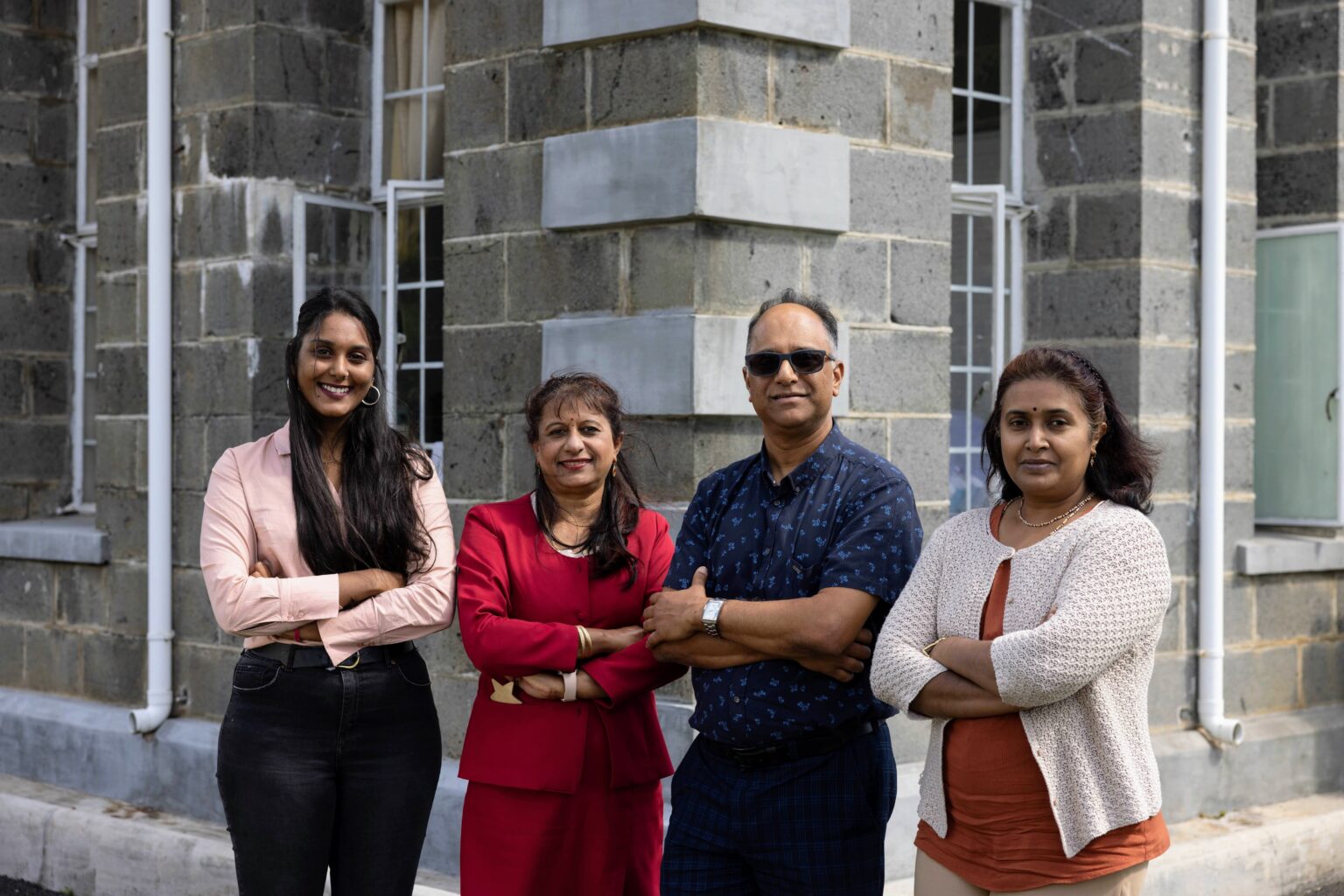Enhancing Food Safety, Food Waste Reduction and Food Innovation
Work Package 3
Enhancing food safety, reducing food waste, and promoting food innovation are crucial priorities for the development of the food sector. This will also benefit consumers by ensuring the availability of safe and nutritious food but also have positive impacts on the sustainability of the economy. Food safety is critical to protect consumers from foodborne illnesses and ensure the quality of food products. Food waste is a major global issue that affects food security and the environment. Innovation in the food industry is crucial for meeting evolving consumer preferences and addressing sustainability challenges. Thus investing in capacity building at all levels, research and development, fostering a culture of sustainable practices and innovation can drive positive changes in food safety, food waste reduction and innovation.
Our Team

L. Beeharee, Assoc Prof D. Goburdhun, Assoc Prof A. Ruggoo, Dr D. Ramful Baboolall,
Dr R Brizmohun Gopaul (not in picture)

To acquire new equipment to enhance the quality of the teaching and research environment in Food Science and Technology at the Faculty of Agriculture and promote training for knowledge transfer/uptake to food enterprises in Mauritius and Rodrigues.
Food and nutrition security is interlinked with research, development and training in food safety, food waste, food preservation and food innovation. A dedicated and properly-equipped Food Technology laboratory has a primordial role to play to that effect.
Proper equipment is required for training and research in Food Science and Technology to produce food science graduates and food entrepreneurs who play an essential role to ensure the food and nutrition security of any country. The Faculty of Agriculture in Mauritius plans to upgrade its Food Technology laboratory to address the challenges and opportunities in the food industry. The lack of equipment has hindered teaching, research, and training activities. The Faculty will mount courses at both undergraduate and postgraduate level for capacity building in Food Science and Technology and an MSc in the field of Food Science and Technology will be developed in line with the vision of the University of Mauritius to become an entrepreneurial university.
The food science laboratory of the Faculty of Agriculture will also be linked to the AgriTECH Park by providing the necessary infrastructure for the development, testing and quality control of innovative food products for validation by the forthcoming agro-processing incubator of the Agri-Tech Park and commercialisation by food enterprises.

To reduce and recover food losses/ food waste to improve food security (led by Assoc Prof Daya Goburdhun and a team comprising of Dr Arvind Ruggoo, Dr Deena Ramful Baboolall and Dr Roshini Brizmohun Gopaul. The trainee project assistant is Miss Lakshaya Beeharee, as Food Science graduate
A compilation of 45 recipes by 14 passionate individuals to valorise leftover foods and imperfect fruits and vegetables, has been made by the team. It will be launched on the International Day of Awareness of Food Loss and Waste-29 September and will be made available, free of charge to everyone.
Our Recipe Book
Awareness Campaign Timeline
A series of workshops, awareness sessions and training sessions was organised in collaboration with different stakeholders by the team over the last two years. The audience were householders, potential entrepreneurs, consumers and students. A media campaign through impactful messages on digital signage, will be launched from 25-29 September in 23 retail outlets throughout the island to reach a maximum number of individuals.
Workshop at Bois Pignolet Community Center
Workshop at Bois Pignolet Community Center (63 participants) and at Morcellement St Andre Khoyratty Community Center (50 Participants) in collaboration with the Sugar Industry Labour Welfare Fund and F.A.L.C.O.N
Oct 2020
Workshop at Mapou
Workshop at Mapou in collaboration with the Sugar Industry Labour Welfare Fund and F.A.L.C.O.N
Feb 2021
Webinar: Food Loss and Food Waste International Day
Webinar on the occasion of the international day of awareness of food loss and food waste
September 2021
Online Focus Group
Online Focus group with Stakeholders on 'Enhancing Food Safety, Food waste reduction and food innovation'
May 2022
Webinar on Food Waste
Webinar on ' Food Waste Reduction and Recovery' for Students in Rodrigues
May 2022
Food Waste Reduction Workshop
Workshop on "Food Waste Reduction; it is our responsibility' with Mauritius Revenue Authority Staff
June 2022
Food Waste Campaign
Campaign on " Together, We can Fight Food Waste at St Nicholas Grammar School"
June 2022
Women Entrepreneur Workshop
Workshop on the 'Valorisation of Food Waste' with women entrepreneur
June 2022
International Day of Awareness on Food Loss
Celebrating International Day of Awareness on Food Loss and Food Waste Reduction
September 2022
Train The Trainers
Train the Trainers Workshop with 18 Home economies instructors and officers on " food waste reduction at household level"
January 2023
Output of WP3
Purchase laboratory equipment required for teaching, research and development in processing, quality control and preservation of food products;
Develop a post-graduate degree in Food Science and Technology with Entrepreneurship.
To conduct a study on food waste generated by relevant stakeholders in the food sector;3.2.2 To develop valorised products from food waste/surplus food;
To organise awareness campaigns for reducing food loss and food waste with different stakeholders.